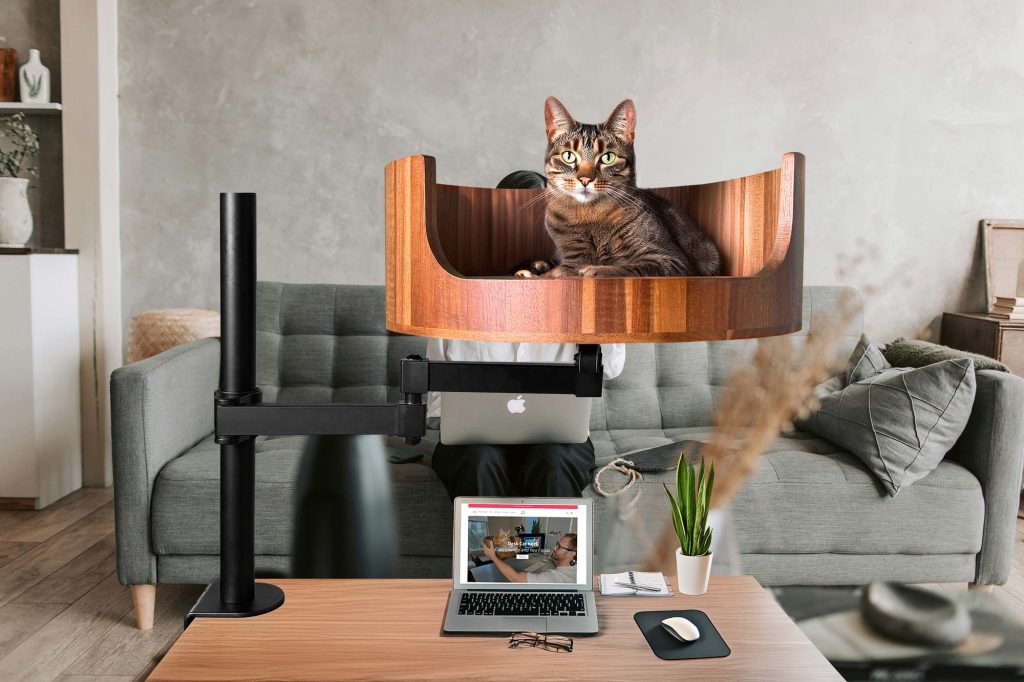Desk Cat Nest is launching a new initiative to educate pet owners about the importance of vaccinating their cats. As responsible pet owners, it is crucial to understand the significance of vaccinations in protecting our furry companions from various diseases and health complications. In this article, we will provide essential tips and guidelines for pet owners to ensure that their cats receive the necessary vaccines to maintain their health and well-being.
From understanding the core vaccines that every cat should receive to learning about the potential risks and benefits of vaccinations, we will cover everything you need to know to make informed decisions about your cat’s healthcare. We will also discuss the importance of creating a vaccination schedule and staying up-to-date with booster shots to ensure long-term protection for your beloved pet. By following these tips and recommendations, you can help safeguard your cat’s health and provide them with a long and happy life by preventing common diseases and illnesses.
1. Vaccinating your cat is crucial to protect them from serious, potentially fatal diseases such as rabies and feline leukemia.
2. Consult with your veterinarian to determine which vaccines are necessary based on your cat’s age, lifestyle, and risk factors.
3. Stay up to date with your cat’s vaccination schedule to ensure ongoing protection against preventable illnesses.
4. Monitor for any adverse reactions following vaccination and report them promptly to your vet.
5. Prioritize your cat’s health and well-being by making vaccination a top priority in their overall care routine.
Types of Vaccines for Cats
Cats require vaccines to protect them against various diseases. The core vaccines recommended for all cats include rabies, feline calicivirus, feline herpesvirus type 1 (feline viral rhinotracheitis), and feline panleukopenia. Non-core vaccines, such as feline leukemia, chlamydia, and bordetella, may be recommended based on the cat’s lifestyle and risk factors. It is essential to consult with your veterinarian to determine the appropriate vaccination schedule for your cat.
Benefits of Vaccinating Your Cat
Vaccinating your cat has several benefits, including preventing life-threatening diseases, reducing the spread of contagious diseases to other animals, and protecting your cat from costly medical treatments. By staying up-to-date on vaccines, you can ensure your cat has a long and healthy life. Vaccines help stimulate the immune system to produce antibodies that fight off specific diseases, providing an added layer of protection for your feline friend.
Vaccination Schedule for Cats
The vaccination schedule for cats typically starts when they are kittens, with a series of initial vaccinations followed by booster shots throughout their life. Kittens should receive their first set of vaccines at around 6-8 weeks of age, followed by boosters every 3-4 weeks until they are around 16 weeks old. Adult cats require booster shots every 1-3 years to maintain immunity. Your veterinarian will customize a vaccination schedule based on your cat’s lifestyle, health status, and risk factors.
Considerations Before Vaccinating Your Cat
Before vaccinating your cat, there are several factors to consider, including their age, health status, lifestyle, and current vaccination history. Some cats may have adverse reactions to vaccines, such as allergic reactions or injection site reactions. It is crucial to discuss any concerns with your veterinarian before proceeding with vaccinations. Additionally, pregnant cats or cats with certain medical conditions may require special considerations when it comes to vaccinations. Always prioritize your cat’s health and well-being when making vaccination decisions.
Desk Cat Nest FAQ
Can the Desk Cat Nest help me vaccinate my cat?
While the Desk Cat Nest is not designed specifically for vaccinating cats, it can provide a cozy and secure space for your cat to rest after receiving vaccines. The comfortable cushion and enclosed design can help your cat feel safe and relaxed during the recovery process.
How can the Desk Cat Nest benefit my cat after vaccinations?
The Desk Cat Nest can provide a quiet and comfortable space for your cat to rest and recover after receiving vaccinations. The elevated design can also help keep your cat away from other pets or children, allowing for peace and privacy during the recovery period.
Is the Desk Cat Nest easy to clean?
Yes, the Desk Cat Nest is made with removable and washable cushions for easy cleaning. Simply unzip the cushion cover and machine wash it on a gentle cycle for a fresh and clean sleeping space for your cat.
Is the Desk Cat Nest suitable for cats of all sizes?
The Desk Cat Nest is designed to accommodate cats of various sizes. The spacious interior and sturdy construction can comfortably support cats weighing up to 15 pounds, providing a safe and secure resting spot for your furry friend.
Can the Desk Cat Nest be used for other purposes besides post-vaccination recovery?
Absolutely! The Desk Cat Nest can also be used as a cozy and stylish bed for your cat to lounge in throughout the day. The elevated design can help keep your cat off the ground, reducing contact with dust and allergens for a healthier sleeping environment.
In conclusion, choosing a Desk Cat Bed for your cat can greatly benefit their overall well-being, especially after receiving vaccinations. The secure and comfortable environment provided by the Desk Cat Bed can help reduce their stress levels and provide a safe space for them to rest and recover. By investing in a Desk Cat Bed, you are not only ensuring your cat’s comfort and happiness, but also helping them recover and stay healthy after getting vaccinated. It is a valuable choice that can make a significant difference in your cat’s post-vaccination experience.


